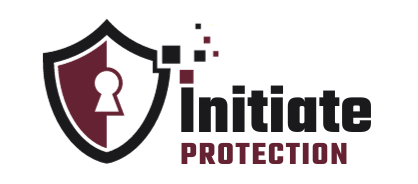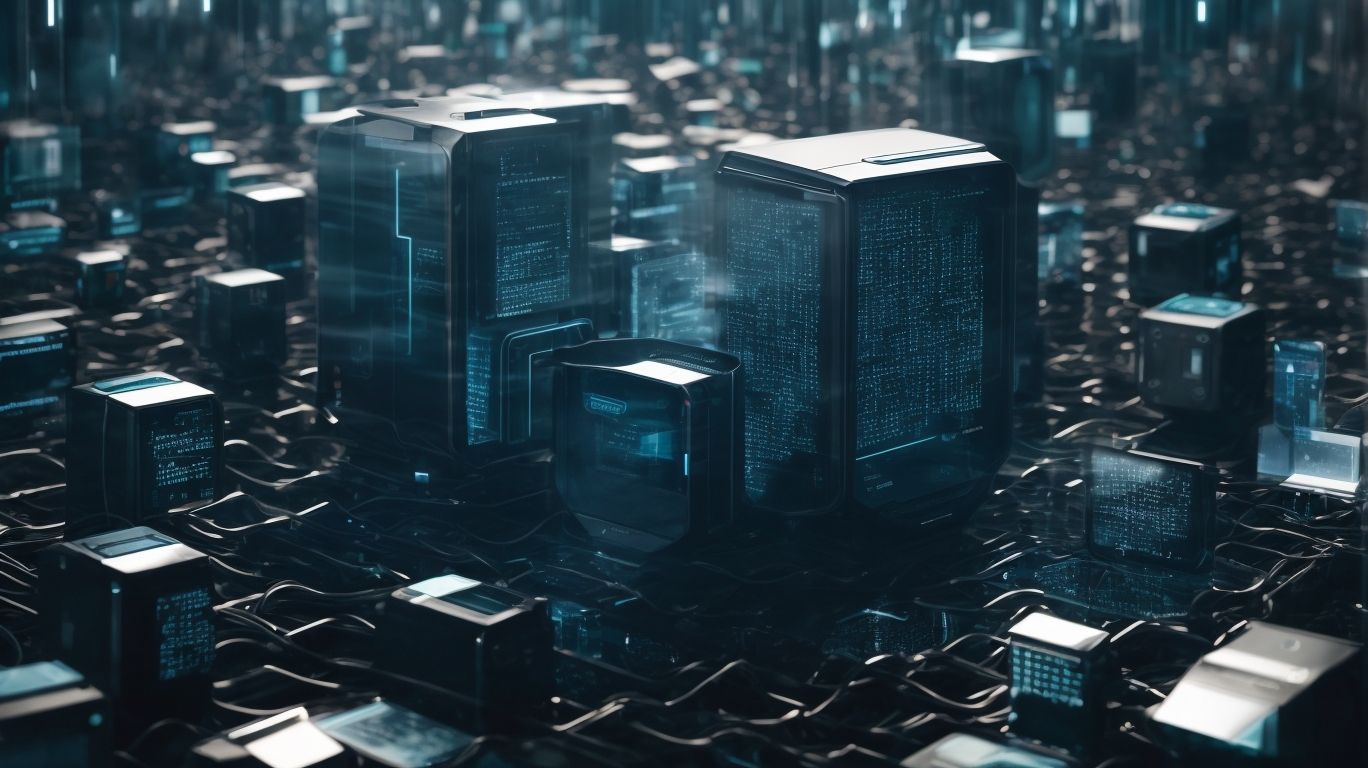The internet is a vast and mysterious place, with hidden corners that most of us have never even heard of. One such corner is the dark web, a place where illegal activities thrive and personal information is at risk. With cybercrime on the rise, it’s crucial to understand the dark web and how to protect yourself from its dangers. Are you ready to delve into the depths of the dark web and learn how to keep your digital identity safe?
What Is the Dark Web?
The Dark Web is a section of the internet that is not searchable by conventional search engines. It can only be accessed through specialized software that offers anonymity. This hidden network is known for being a hub of illegal activities, including drug trafficking and hacking services. However, it is also utilized by activists and journalists who require secure communication. It is crucial to recognize that not all content on the Dark Web is illicit or hazardous, but it does present potential risks. Safeguarding oneself involves utilizing VPNs, creating strong passwords, and exercising caution when accessing websites and links.
How Is the Dark Web Different from the Deep Web?
The Dark Web and the Deep Web are often used interchangeably, but they actually refer to different parts of the internet. Here are the key differences between the two:
- Access: The Deep Web refers to all web pages that are not indexed by search engines, while the Dark Web is a small portion of the Deep Web that can only be accessed through specific software, such as Tor.
- Anonymity: The Dark Web offers a higher level of anonymity through multiple layers of encryption, while the Deep Web does not guarantee anonymity.
- Content: The Deep Web includes databases, academic journals, and private networks, while the Dark Web is known for its illegal activities and black marketplaces.
Fact: Although the Dark Web is estimated to be only 0.01% of the entire internet, it receives significant attention due to its illicit activities.
How to Access the Dark Web?
Accessing the dark web requires specific software and precautions to ensure anonymity and security. Here are the steps to access the dark web:
- Install a reliable VPN (Virtual Private Network) to mask your IP address.
- Download and install a Tor browser, like Tor Browser or Tails.
- Open the Tor browser and connect to the Tor network.
- Enter specific dark web URLs (.onion sites) to access hidden websites.
- Exercise caution and avoid sharing personal information.
Fact: It’s important to note that accessing the dark web involves navigating through illegal activities and potentially harmful content, so proceed with caution and prioritize your online safety.
What Are the Precautions to Take Before Accessing the Dark Web?
Before venturing into the dark web, it is essential to take precautions to ensure your safety and anonymity.
- Use a virtual private network (VPN) to conceal your IP address and encrypt your connection.
- Utilize a secure browser that safeguards against tracking and surveillance.
- Avoid clicking on suspicious links to minimize the risk of malware or phishing attacks.
- Create strong and unique passwords to protect your accounts from being compromised.
- Keep your antivirus and firewall software up to date to defend against potential threats.
- Be cautious with personal information, as any data shared on the dark web can be used against you.
True story: By following these precautions, a user accessed the dark web and discovered a forum dedicated to exposing government corruption. They anonymously shared evidence and became part of a group that uncovered a major political scandal. These measures ensured their safety throughout the entire investigation.
What Are the Dangers of the Dark Web?
The dark web has gained a notorious reputation for being a breeding ground for illegal activities and cybercrime. In this section, we will delve into the potential dangers of the dark web and how it can pose a threat to online security. From illegal activities such as drug trafficking and human trafficking to cybercrime like hacking and fraud, the dark web is a hotbed for criminal activity. We will also discuss the risk of identity theft and the spread of malware and viruses in this hidden corner of the internet.
1. Illegal Activities
The Dark Web is notorious for being a center of illegal activities. Here are some steps to take to avoid getting involved with such activities:
- Understand the risks: Be aware of the potential consequences of engaging in illegal activities.
- Stay informed: Keep up to date with laws and regulations regarding online activities.
- Use caution: Be cautious of websites or forums that promote illegal activities.
- Protect your identity: Utilize tools like VPNs and encrypted messaging services to maintain anonymity.
- Report illegal activities: If you come across illegal content or activities, report them to the appropriate authorities.
2. Cybercrime
Cybercrime is a significant concern on the dark web. Criminal activities such as hacking, selling stolen data, and conducting illegal transactions thrive in this hidden part of the internet. Cybercriminals exploit vulnerabilities to compromise personal information, spread malware, and commit fraud.
To protect yourself from cybercrime on the dark web:
- Use a reputable VPN to encrypt your connection.
- Utilize a secure browser that blocks malicious websites.
- Avoid clicking on suspicious links that may lead to malware.
- Create strong and unique passwords for all accounts.
- Keep your antivirus and firewall up to date.
- Be cautious about sharing personal information online.
3. Identity Theft
Identity theft is a significant risk when accessing the dark web. Protect yourself by following these steps:
- Use a reputable VPN to encrypt your internet connection and hide your IP address.
- Utilize a secure browser that offers built-in privacy features and protects against tracking.
- Avoid clicking on suspicious links or downloading unknown files to prevent malware and phishing attacks.
- Create strong, unique passwords for all your accounts and enable two-factor authentication.
- Keep your antivirus software and firewall up to date to detect and block any potential threats.
- Be cautious with sharing personal information and only provide it on trusted websites or platforms.
4. Malware and Viruses
The Dark Web is notorious for its risks, including the presence of malware and viruses. To protect yourself while accessing the Dark Web, follow these steps:
- Utilize a dependable antivirus program to detect and eliminate any potential malware.
- Ensure that your operating system and software are kept up to date to prevent vulnerabilities.
- Avoid downloading files or clicking on suspicious links that may contain malware.
- Utilize a secure and encrypted network connection, such as a virtual private network (VPN), to conceal your identity and safeguard your data.
Remember, being cautious and taking these precautions can help ensure your online security while navigating the Dark Web.
How to Stay Protected on the Dark Web?
The dark web can be a dangerous place, with cybercriminals lurking around every corner. But fear not, there are ways to stay protected while navigating this hidden part of the internet. In this section, we’ll discuss six key steps you can take to safeguard your online presence on the dark web. From utilizing a VPN and secure browser to being cautious with personal information, these tips will help you stay safe and secure while exploring the depths of the dark web.
1. Use a VPN
Using a Virtual Private Network (VPN) is crucial when accessing the Dark Web to ensure privacy and security. Follow these steps to use a VPN:
- Select a reputable VPN provider such as NordVPN or ExpressVPN.
- Download and install the VPN software on your device.
- Open the VPN application and log in using your login information.
- Choose a server location from the available options.
- Connect to the selected server to establish a secure connection.
- Once connected, your IP address will be hidden, providing anonymity.
- Access the Dark Web using a Tor browser, ensuring that all internet traffic goes through the VPN.
By utilizing a VPN, you can safeguard your identity, encrypt your data, and securely browse the Dark Web.
2. Use a Secure Browser
Using a secure browser is crucial when browsing the dark web to safeguard your privacy and online security. Follow these steps:
- Choose a secure browser such as Tor, specifically designed for anonymous and secure browsing.
- Download and install the secure browser from the official Tor Project website.
- Configure your secure browser by following the instructions provided by Tor.
- Launch the secure browser and connect to the Tor network.
- Ensure your browser settings are properly configured for maximum security and privacy.
- Before accessing any websites on the dark web, always remember to disable JavaScript and enable Tor’s security features.
Fact: Tor is the most widely used secure browser for accessing the dark web, providing anonymity and protecting users’ identities.
3. Avoid Clicking on Suspicious Links
To avoid falling victim to scams or malware on the dark web, it is crucial to follow these steps and avoid clicking on suspicious links:
- Be cautious and skeptical of unfamiliar websites or links.
- Do not click on links sent by unknown or untrusted sources.
- Check the URL carefully before clicking on it.
- Use a reliable and up-to-date antivirus software to detect and prevent malicious links.
- Keep your web browser and operating system updated with the latest security patches.
Here is a true story to illustrate the importance of avoiding suspicious links: A person once clicked on a suspicious link on the dark web, which led to their personal information being compromised and used for identity theft. This incident caused significant financial and emotional distress, emphasizing the need to exercise caution when exploring the dark web.
4. Use Strong Passwords
Creating strong passwords is crucial for protecting your online security, especially when accessing the dark web. Here are some steps to help you create strong passwords:
- Use a combination of uppercase and lowercase letters.
- Include numbers and special characters.
- Avoid using common words or phrases.
- Make your password at least 12 characters long.
- Use a unique password for each account.
By following these steps, you can significantly enhance the security of your accounts and reduce the risk of being compromised on the dark web.
5. Keep Your Antivirus and Firewall Updated
Keeping your antivirus and firewall updated is crucial for maintaining security while accessing the Dark Web. Follow these steps:
- Regular Updates: Make sure to keep your antivirus software up to date with the latest virus definitions and security patches.
- Firewall Settings: Configure your firewall settings to only allow trusted connections and block unauthorized access.
- Automatic Updates: Enable automatic updates for both your antivirus software and firewall to ensure continuous protection.
- Real-Time Scanning: Turn on real-time scanning to detect and block potential threats in real-time.
- Regular Scans: Perform regular full system scans to identify and remove any existing malware or viruses.
6. Be Cautious with Personal Information
When exploring the dark web, it is crucial to be cautious with personal information in order to protect yourself from potential threats. Here are some steps to follow:
- Use a pseudonym or alias instead of your real name.
- Do not share sensitive personal information, such as your address or phone number.
- Avoid using your regular email address; create a separate one for dark web activities.
- Encrypt your communications using secure messaging platforms.
- Be mindful of the information you share in online forums or chatrooms.
- Use cryptocurrency for transactions to maintain anonymity.
- Regularly monitor your credit reports and financial accounts for any suspicious activity.
What Are Some Legal Uses of the Dark Web?
While the dark web is often associated with illegal activities, there are actually legitimate and legal uses for this hidden part of the internet. In this section, we will explore the various ways in which the dark web can be used for legal purposes. From whistleblowing to journalistic research to government investigations, the dark web can provide a platform for anonymous communication and information sharing. Let’s delve into these legal uses of the dark web and understand how they can benefit individuals and society as a whole.
1. Whistleblowing
Whistleblowing is one of the legal uses of the dark web. Here are the steps to safely blow the whistle:
- Ensure anonymity: Use a secure browser and a VPN to protect your identity.
- Choose a secure platform: Access reputable whistleblowing platforms on the dark web.
- Protect your information: Encrypt your documents and communications to prevent leaks.
- Stay vigilant: Be cautious of any suspicious activity or attempts to trace your identity.
Fun Fact: Whistleblowing has played a crucial role in exposing corporate wrongdoing and government misconduct.
2. Journalistic Research
Journalistic research on the dark web requires careful navigation and ethical considerations. Here are the necessary steps to conduct such research:
- Install a secure operating system and use a virtual machine for added security.
- Access the dark web through a secure browser like Tor to ensure privacy.
- Maintain online anonymity by using a reputable VPN.
- Verify sources and cross-reference information to ensure accuracy.
- Exercise caution and adhere to legal and ethical guidelines.
Fact: Journalistic research on the dark web has exposed numerous illegal activities, resulting in law enforcement action and increased public awareness.
3. Government Investigations
Government investigations are crucial for combating illegal activities and ensuring the safety of citizens on the dark web. To conduct effective investigations, law enforcement agencies follow a series of steps:
- Collecting evidence: Agents gather digital evidence related to criminal activities on the dark web.
- Analyzing data: Investigators analyze the collected data to identify key individuals, networks, and activities.
- Infiltrating networks: Undercover officers may pose as buyers or sellers to gather information and gain access to closed communities.
- Monitoring and surveillance: Law enforcement agencies monitor suspect activities, tracking communications and transactions.
- Tracing financial transactions: Investigators trace the flow of cryptocurrencies to identify and apprehend individuals involved in illegal activities.
- Coordinating international efforts: Collaboration between different agencies and countries is essential to tackling global criminal networks.
- Prosecuting offenders: Once evidence is gathered and suspects identified, law enforcement agencies work with prosecutors to bring criminals to justice.
4. Anonymous Communication
Anonymous communication is one of the primary uses of the dark web, providing individuals with privacy and security. To engage in anonymous communication on the dark web, follow these steps:
- Use a VPN to conceal your IP address and encrypt your internet connection.
- Utilize a secure browser like Tor to access the dark web.
- Avoid clicking on suspicious links to prevent exposure to malware or phishing attempts.
- Create strong passwords for your accounts to safeguard your identity.
- Ensure your antivirus and firewall software is regularly updated to defend against potential threats.
- Exercise caution when sharing personal information to maintain anonymity.
Frequently Asked Questions
What is the Dark Web and how is it different from the regular internet?
The Dark Web is a part of the internet that is not accessible through traditional search engines. It is a collection of websites that require specific software or configurations to access, making it more difficult to trace. Unlike the regular internet, the Dark Web is not indexed and is often used for illegal activities.
How can I access the Dark Web?
To access the Dark Web, you need to download a special browser, such as Tor, and configure it to access the Dark Web. This will provide you with an anonymous connection and allow you to browse websites that are only accessible through the Dark Web.
What are the dangers of browsing the Dark Web?
The Dark Web is known for hosting illegal activities and content, including drug trafficking, weapons trade, and child pornography. Browsing the Dark Web exposes you to these dangers and puts you at risk of being scammed, hacked, or even caught by law enforcement.
How can I stay protected while browsing the Dark Web?
To stay protected while browsing the Dark Web, you should use a VPN to hide your IP address and encrypt your internet traffic. You should also avoid clicking on suspicious links, use different usernames and passwords for each website, and regularly update your antivirus and firewall software.
Is it illegal to browse the Dark Web?
Browsing the Dark Web itself is not illegal, but it is often associated with illegal activities. However, accessing certain illegal content or participating in illegal activities on the Dark Web can result in legal consequences. It is important to use caution and exercise good judgment when browsing the Dark Web.
Are there any legitimate uses for the Dark Web?
While the Dark Web is often associated with illegal activities, there are also legitimate uses for it. Journalists and activists may use it to communicate anonymously, and it can also be a valuable research tool for law enforcement. However, it is important to use caution and understand the potential risks when accessing the Dark Web.







